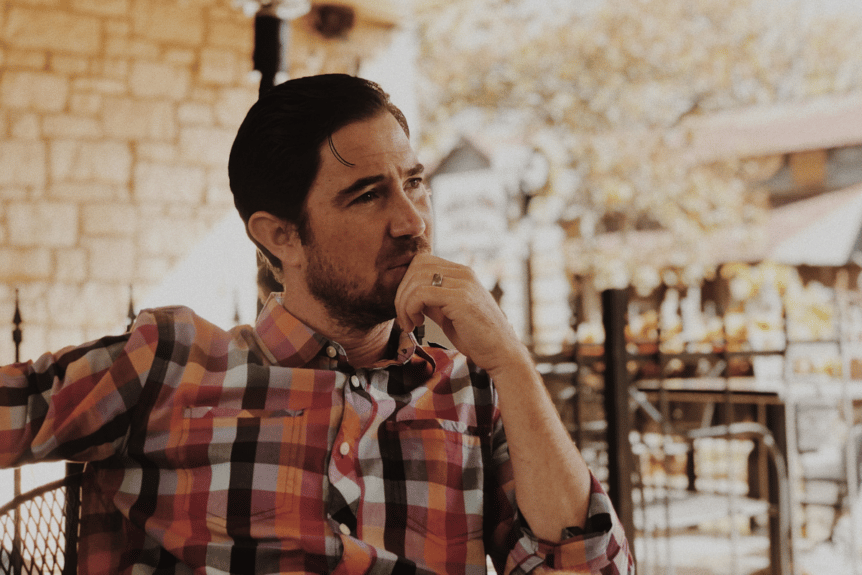Anxiety and depression are two of the most common mental illnesses in Canada. They can be difficult to distinguish, as they’re often talked about in the same breath. It’s important to know the difference between the two when trying to support yourself, or a loved one. Here’s what you need to know about anxiety vs depression.
Anxiety and depression are distinctive disorders
Anxiety and depression are separate disorders with distinct symptoms, causes, and lived experiences. While they can sometimes co-occur in the same person, they’re not defined by each other — meaning anxiety is not considered a form of depression, and vice versa. What is the main difference in anxiety and depression? Anxiety is an umbrella term that can be used to describe any number of different mental health issues that generally fall under the categories of obsessive-compulsive disorder (OCD), post-traumatic stress disorder (PTSD), panic disorder, generalized anxiety disorder (GAD), social anxiety disorder (SAD), and phobias. It affects everyone differently—but common threads among those suffering include feelings of fear and dread.
What is anxiety?
Anxiety is a feeling of worry, nervousness, or unease about something. For example, you may experience anxiety when you’re doing something new or challenging. That’s a very normal reaction to new experiences. However, anxiety becomes a problem when it starts getting in the way of your daily life. Anxiety can cause physical symptoms such as:
- Nervousness
- Restlessness
- Fatigue (extreme tiredness)
- Rapid heartbeat
- Shortness of breath
- Sweating
These symptoms may stop a person from living the life they want. That’s when it’s important to seek help from a professional like a counsellor.
What is depression?
Depression is a mood disorder. It’s not a sign of weakness, nor is it a normal reaction to stress or a difficult situation. Depression affects the way you think, feel and behave. Some signs can help you recognize depression and seek treatment quickly.
Depression symptoms include:
- A persistent feeling of sadness, guilt, or grief
- Irritability
- Decreased interest in favourite activities and hobbies
- Difficulty concentrating
- Sleep problems (insomnia)
Like anxiety, depression can cause you to withdraw from daily life and responsibilities.
What is the main difference between anxiety and depression?
When it comes to depression vs anxiety, the main difference is the core feeling. Anxiety is a feeling of worry, fear and dread, while depression is a feeling of sadness, emptiness and hopelessness. However, it can be difficult to distinguish between the two conditions because they share some symptoms. For example, both may cause feelings of hopelessness or despair.
Anxiety and depression are often co-morbid
This means that they occur together, or one can trigger the other. Anxiety can also be caused by depressive disorder. For example, if you’re struggling with depression and start to feel anxious about it (e.g., worrying that your depression will never go away), this can make your anxiety worse. In some cases, treating one disorder will also help treat the other. For example:
- If you have anxiety, antidepressants may be beneficial for both disorders at once.
- If you have depression, medication for anxiety may be beneficial for both disorders at once.
This means that both types of mental health issues are treatable—even if they occur together!
Who is at risk for developing anxiety and depression?
If you have a family history of mental health disorders, it’s important to pay attention to how you’re feeling. If your mood and behaviour change after stressful events (such as relationship issues or financial problems) talk to a licensed mental health professional about how best to handle these situations.
If a person has experienced trauma in the past, it can lead them down a road toward developing anxiety or depression. For those that have not been diagnosed with either condition before but are showing signs of having one or both conditions, it’s important to seek help right away because these changes could be indicators of a serious mental health disorder.
Treatments
- Medication: Many forms of medication can treat both health disorders, with some of the most popular groups being SSRIs. Talk to your doctor or mental health professional for more information.
- Counselling: A mental health professional can help you get to the root of your struggles. Together, you can set a treatment plan to start feeling better sooner.
Conclusion
Anxiety and depression are distinct disorders, with their symptoms and treatment options. But they can also co-exist in the same person. If you’re experiencing symptoms of both conditions, talk to your doctor about getting help. They’ll be able to recommend appropriate care that addresses both problems simultaneously.Experiencing anxiety? You’re not alone. Online anxiety counselling can help. Get help today.

